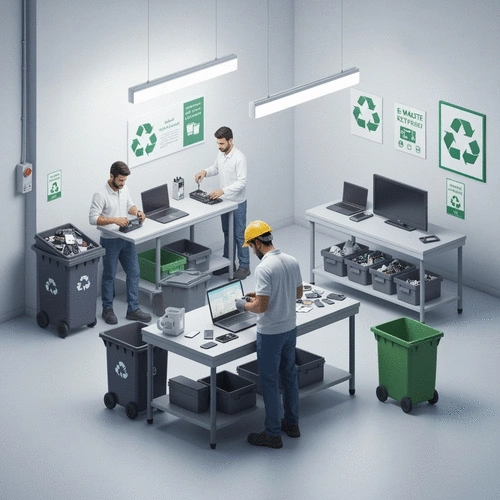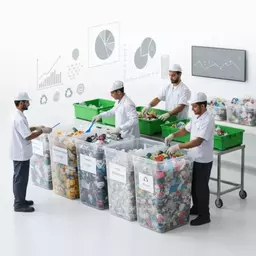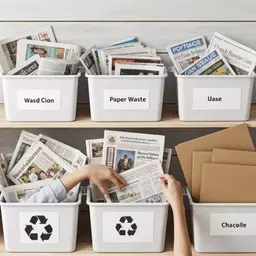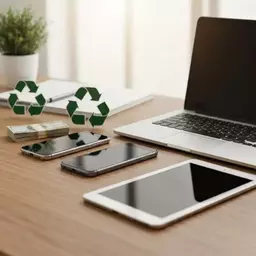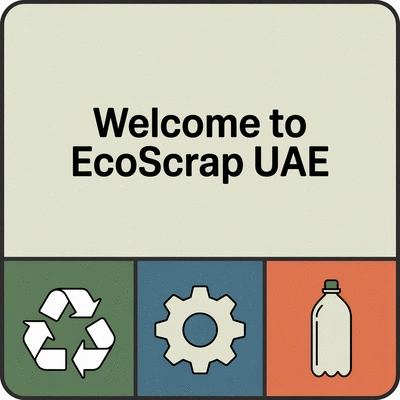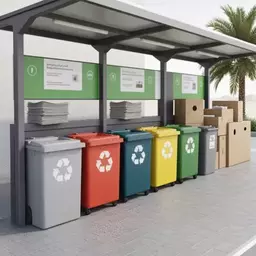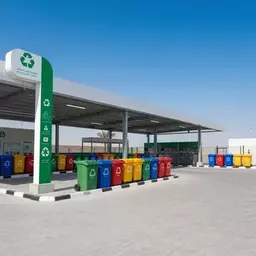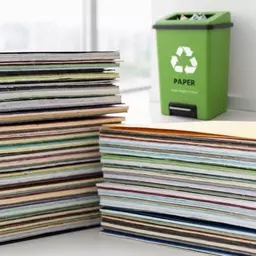Did you know that globally, over 50 million tons of e-waste are generated each year? This staggering figure underscores the urgent need for responsible recycling. By understanding e-waste and its impact, you can play a significant role in protecting our environment.
What You Will Learn
- E-waste includes a wide range of discarded electronics, from computers to kitchen appliances.
- Recycling e-waste helps recover precious materials like gold, silver, and copper, reducing the need for new raw materials.
- Improper disposal of e-waste poses significant health and environmental risks, including soil and water contamination.
- Only 20% of e-waste is formally recycled, highlighting a critical opportunity for improvement.
- Community engagement is vital; by spreading awareness, you can foster a culture of sustainability in your neighborhood.
- Practical steps include conducting e-waste audits and using local recycling programs like EcoScrap UAE for proper disposal.
E-Waste Statistics: The Global and UAE Perspective
Understanding the scale of e-waste generation and recycling efforts is crucial for addressing its environmental impact. Below, we highlight key statistics that underscore the urgency of responsible e-waste management.
Global E-Waste Generation
50M+
tons generated globally each year.
Formal Recycling Rate
20%
of global e-waste is formally recycled.
UAE E-Waste Growth
30%
annual growth expected in the UAE.
Understanding E-Waste and Its Environmental Impact
As we dive into the topic of e-waste, it's crucial to understand what it actually encompasses. E-waste refers to discarded electrical or electronic devices, which can include everything from old computers to broken household appliances. At EcoScrap UAE, we believe that recycling these materials is not just important; it’s essential for a sustainable future. Responsible recycling can turn e-waste into valuable resources, helping to conserve energy and reduce pollution.
Recycling e-waste is vital because it prevents harmful materials, like lead and mercury, from contaminating our environment. By choosing to recycle, you’re not just decluttering your home; you're also playing a part in protecting our planet! So, next time you consider tossing out an old gadget, remember the potential it holds.
What Is E-Waste and Why Is Recycling Important?
To put it simply, e-waste is any electronic device that is no longer in use. This can include items such as:
- Old computers and laptops
- Mobile phones and tablets
- Television sets
- Kitchen appliances
- Broken electronic toys
Recycling e-waste is important because it helps recover precious materials like gold, silver, and copper, which are often used in electronic components. By recycling, we ensure these materials are reused rather than lost forever in landfills.
Environmental and Health Risks of Improper E-Waste Disposal
Improperly disposing of e-waste poses significant environmental and health hazards. When these materials end up in landfills, they can leach toxic substances into the soil and water supply. This can lead to serious environmental issues, including:
- Soil contamination with heavy metals
- Water pollution affecting local ecosystems
- Health risks for communities near landfills
As a passionate advocate for sustainability, I often stress the importance of proper e-waste disposal. The risks are too great to ignore, and by recycling responsibly, we can mitigate these dangers.
Key E-Waste Statistics: Understanding the Scale of the Issue
To truly grasp the impact of e-waste, consider these alarming statistics:
- Globally, over 50 million tons of e-waste are generated each year, as detailed in the Global E-Waste Monitor.
- Only 20% of this waste is formally recycled, leaving a staggering amount untreated.
- In the UAE alone, e-waste is expected to grow by 30% annually, a trend highlighted in reports such as the EAD Annual Report.
These figures highlight the urgency of addressing e-waste recycling. At EcoScrap UAE, we are committed to raising awareness about these issues and providing solutions that make recycling simple and accessible for everyone.
Did You Know?
According to the Global E-Waste Monitor, less than 20% of e-waste is recycled globally. This means that a staggering 80% of electronic waste is left to pollute our environment, highlighting the urgent need for responsible disposal and recycling practices.
Frequently Asked Questions About E-Waste Recycling
What is e-waste?
E-waste refers to discarded electrical or electronic devices, including old computers, mobile phones, televisions, kitchen appliances, and broken electronic toys.
Why is e-waste recycling important?
Recycling e-waste is crucial for several reasons: it recovers valuable materials like gold, silver, and copper, prevents harmful toxic substances (such as lead and mercury) from contaminating the environment, and reduces the need for new raw materials, conserving energy and reducing pollution.
What are the risks of improper e-waste disposal?
Improper disposal of e-waste leads to significant environmental and health hazards. Toxic substances can leach into soil and water supplies, causing contamination, affecting local ecosystems, and posing serious health risks to communities near landfills.
How much e-waste is generated globally, and how much is recycled?
Globally, over 50 million tons of e-waste are generated each year. However, only about 20% of this waste is formally recycled, leaving a vast majority untreated and polluting the environment.
What can individuals and businesses do to contribute to sustainable e-waste recycling?
Individuals and businesses can take several practical steps, including conducting e-waste audits, utilizing local recycling programs (like EcoScrap UAE), establishing regular recycling schedules, promoting e-waste awareness, and engaging in community workshops to spread knowledge about sustainable practices.
Summarizing Key Takeaways on E-Waste Recycling in the UAE
As we navigate the complexities of electronic waste, it's clear that responsible e-waste disposal is crucial. Recycling e-waste not only helps in recovering valuable materials but also significantly reduces the environmental harm associated with improper disposal. Through initiatives and regulations in the UAE, such as those overseen by the Environment Agency – Abu Dhabi (EAD), we are moving towards a more sustainable future, and as residents, we all play a part in this vital effort.
To recap, here are the key points about the importance of e-waste recycling:
- Environmental Protection: Recycling reduces landfill waste and pollution.
- Health Risks Mitigation: Proper disposal prevents harmful substances from leaching into the environment.
- Resource Recovery: Valuable materials like metals and plastics can be reused.
- Community Engagement: Active participation fosters a culture of sustainability.
Responsible E-Waste Disposal: Why It Matters
When it comes to e-waste disposal, making responsible choices is essential. Think of the impact we can have: every smartphone or computer we recycle contributes to a cleaner environment. At EcoScrap UAE, we understand the significance of this responsibility and strive to educate our community about the benefits of recycling.
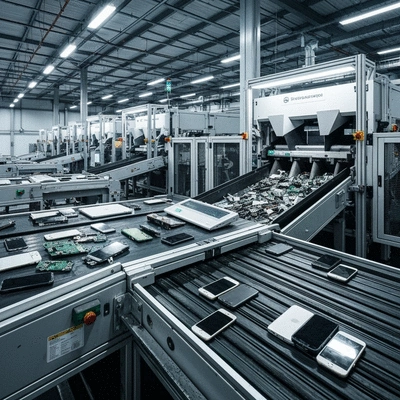
It's not just about getting rid of old gadgets; it's about ensuring that we are protecting our planet for future generations. So, let’s commit to responsible disposal together. Here are some practical steps you can take:
- Identify e-waste items at home that you no longer use.
- Research local recycling programs or facilities.
- Schedule a pickup with EcoScrap UAE for convenient disposal.
- Spread the word to friends and family about the importance of recycling!
Final Thoughts on E-Waste Management and Community Responsibility
As we wrap up our discussion on e-waste management, it's crucial to recognize our collective responsibility. Each of us has the power to influence change in our community. By prioritizing recycling and proper disposal methods, we contribute to building a cleaner and greener UAE.
Reflect on how your actions can inspire others to join the sustainability movement. After all, every small step counts! Whether you’re decluttering your home or guiding a business, remember that responsible waste management is a shared journey.
Taking Action: How You Can Contribute to Sustainable Recycling
Next Steps for Households and Businesses in E-Waste Recycling
It’s time to take action! Whether you run a household or a business, there are practical steps you can implement to make a difference. Start by assessing your current waste disposal practices and explore how they can be improved. Here are a few actionable next steps:
- Conduct an e-waste audit to identify items for recycling.
- Establish a regular recycling schedule with EcoScrap UAE.
- Incorporate e-waste awareness training for employees.
- Promote recycling initiatives in your neighborhood or workplace.
Encouragement to Share Knowledge and Spread Awareness
Awareness is a powerful tool! By sharing knowledge about e-waste recycling, you can inspire those around you to take action. Engage with friends, family, and colleagues about the importance of sustainable practices. You might be surprised at how many people want to learn more!
Consider hosting community workshops or informational sessions to showcase the benefits of recycling. At EcoScrap UAE, we’re always here to support you with resources and guidance!
Exploring the Circular Economy and Its Benefits for E-Waste Management
Let’s dive into the concept of a circular economy—an approach that emphasizes reusing and recycling materials to minimize waste. Embracing this model has significant benefits, especially for e-waste management. As discussed in research on sustainable development and the circular economy, by shifting our focus from a linear economy to a circular one, we can:
- Reduce the demand for new raw materials.
- Minimize environmental degradation caused by extraction processes.
- Enhance job creation through recycling and refurbishment initiatives.
- Support local economies by utilizing local recycling services like EcoScrap UAE.
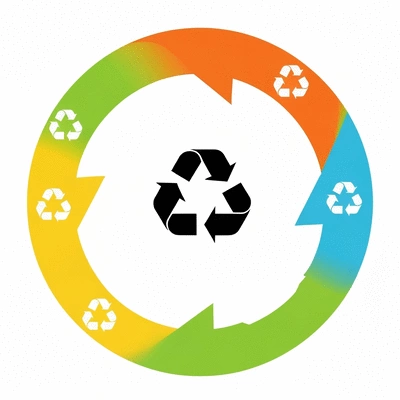
Through these actions, we not only address the e-waste crisis but also contribute to a sustainable future. Join us in this vital mission, and let’s create a greener, healthier UAE for everyone!
Recap of Key Points
Here is a quick recap of the important points discussed in the article:
- Environmental Protection: Recycling reduces landfill waste and pollution.
- Health Risks Mitigation: Proper disposal prevents harmful substances from leaching into the environment.
- Resource Recovery: Valuable materials like metals and plastics can be reused.
- Community Engagement: Active participation fosters a culture of sustainability.
- Take Action: Identify e-waste items and research local recycling programs.

